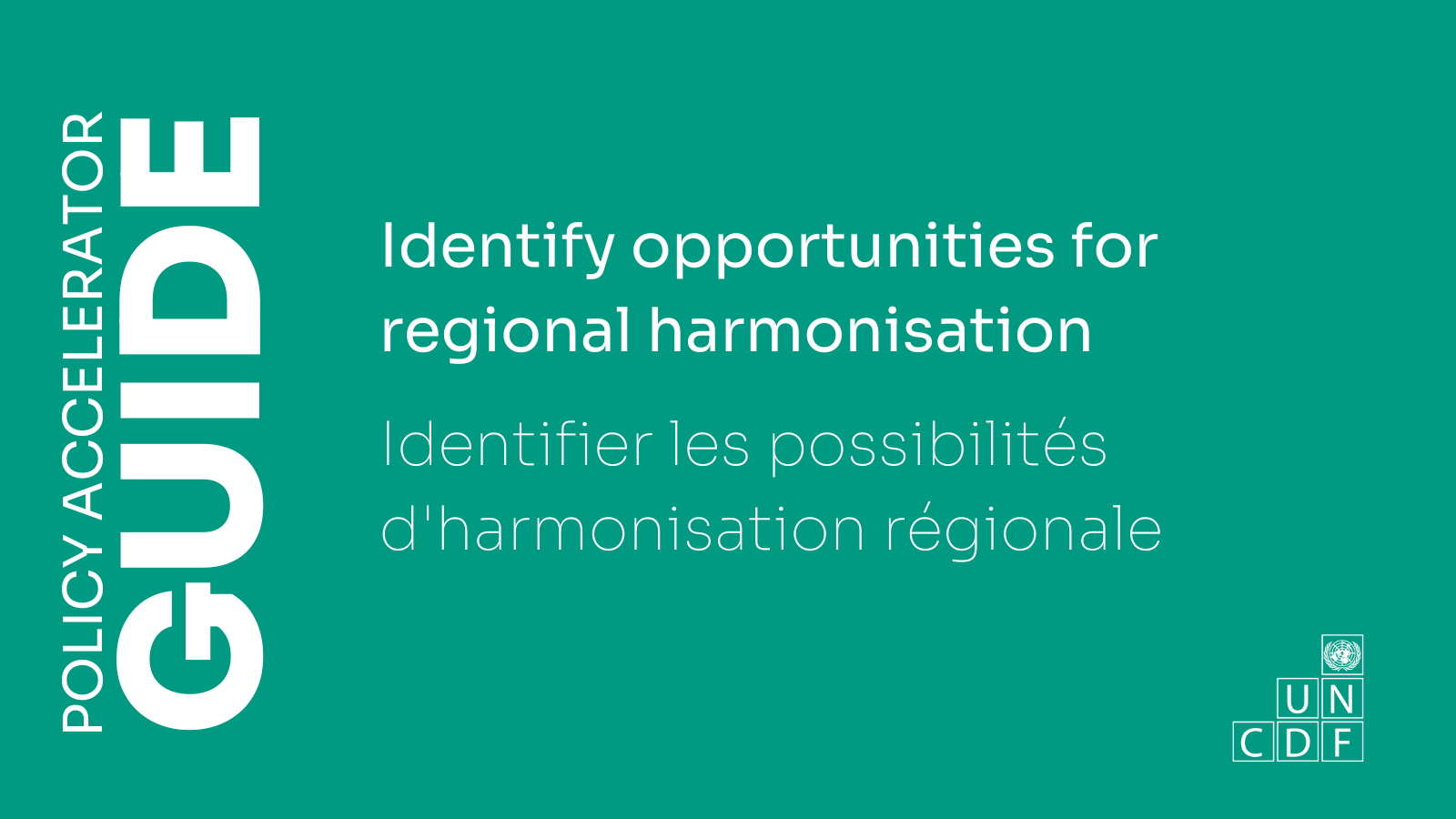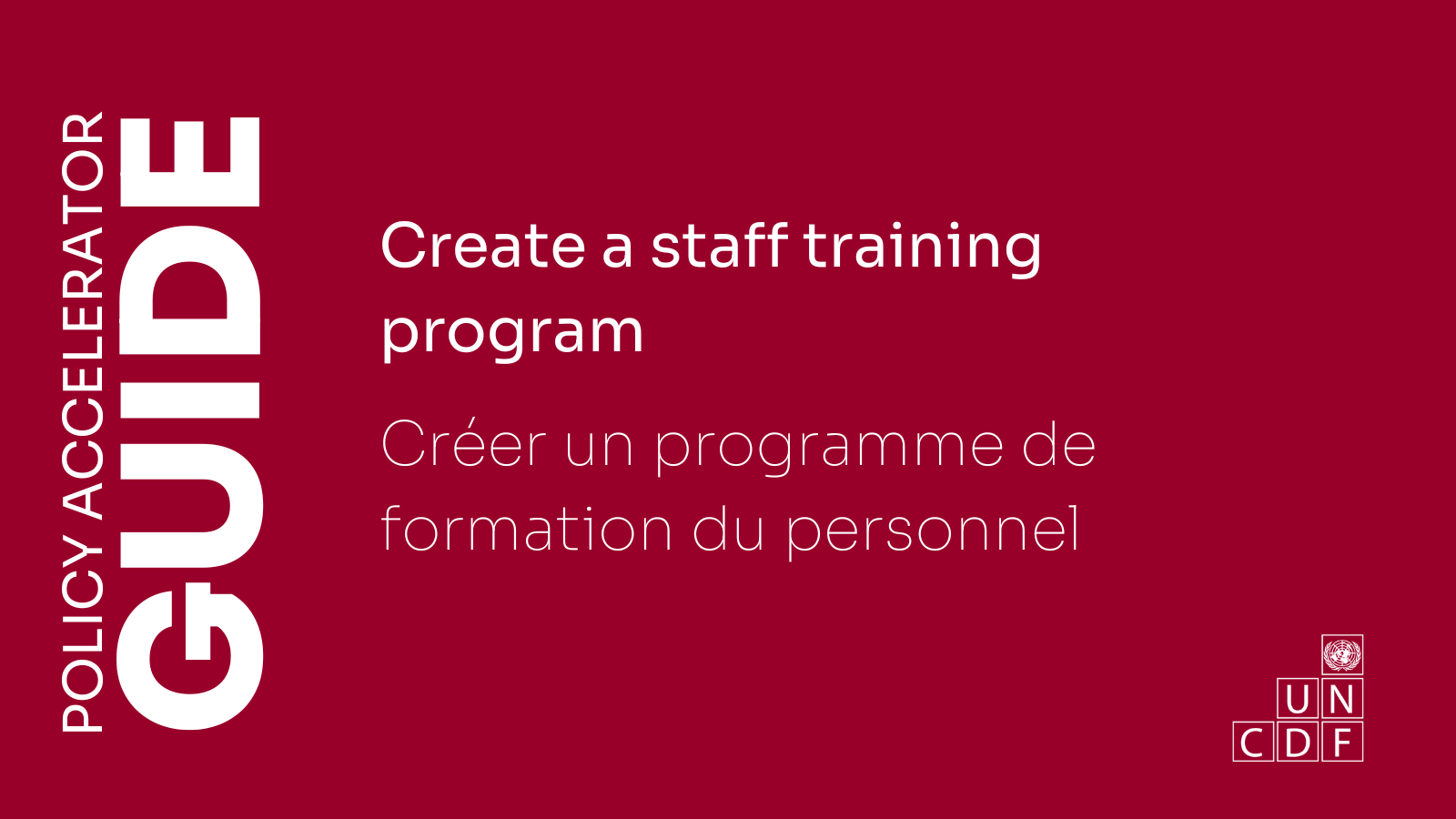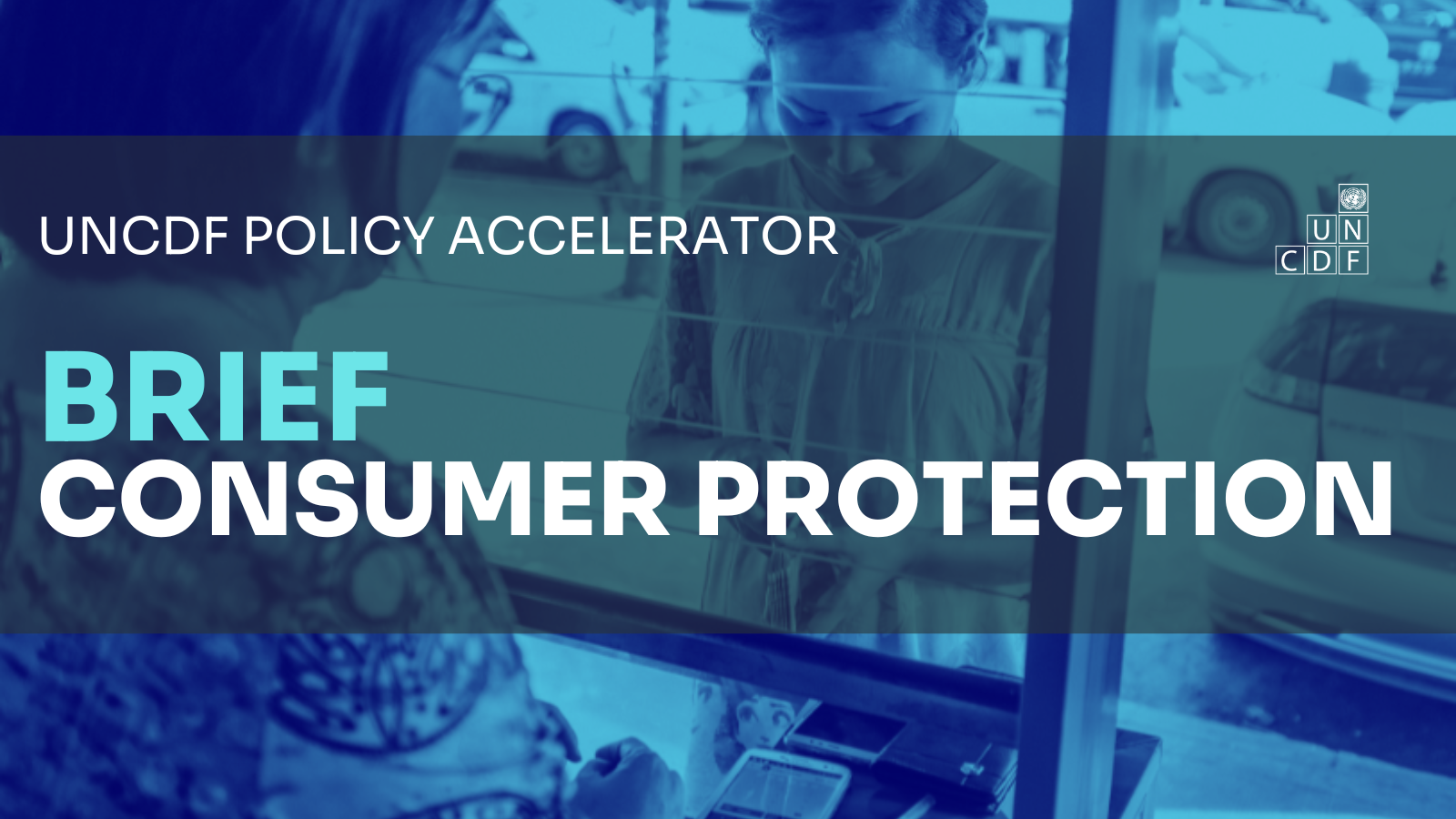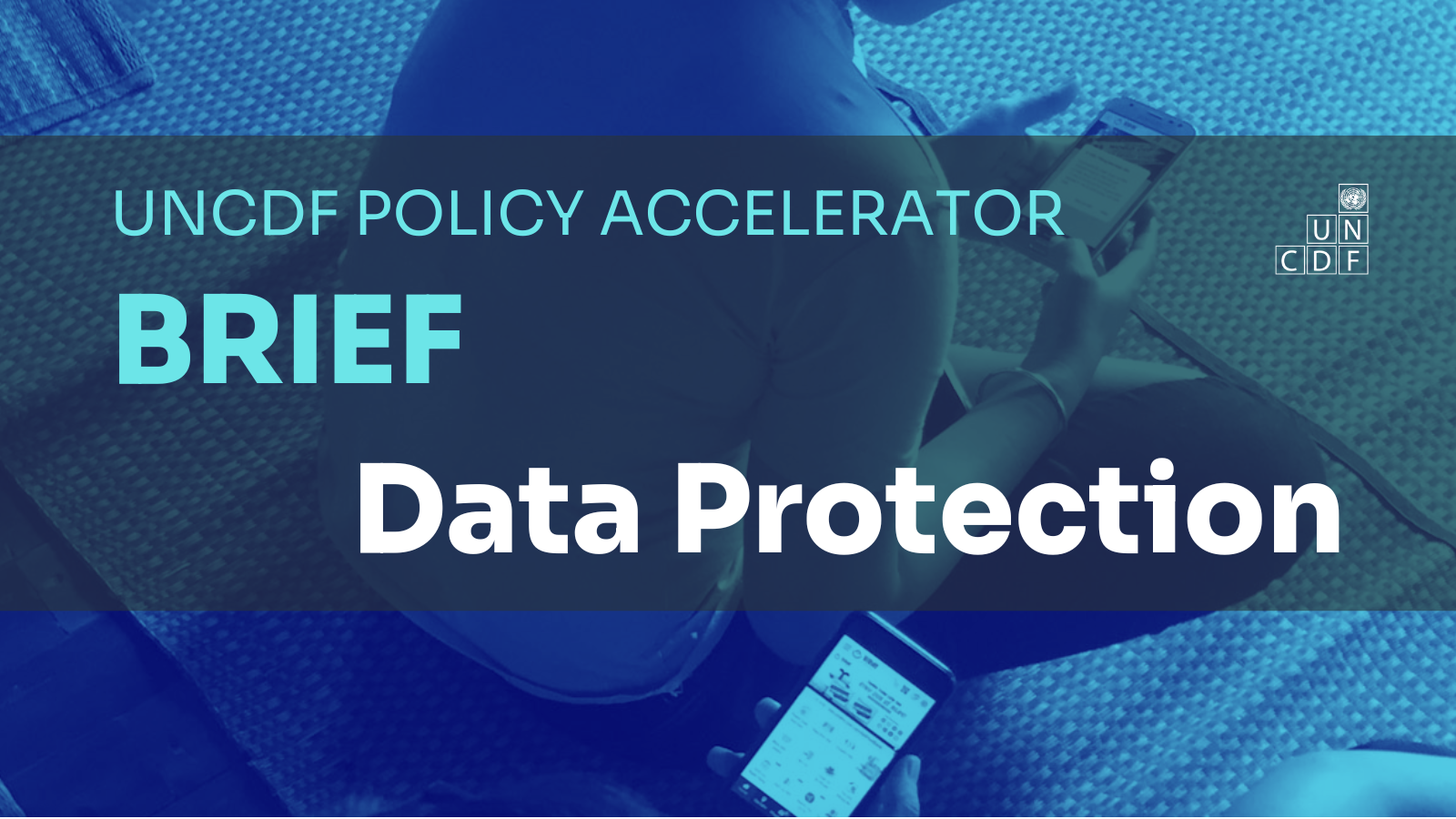
Policy tools and resources
Explore practical resources for digital financial services policymaking.
Empowering stakeholders for effective policy change
Using the UNCDF Policy Advisory tools and resources
Explore our briefs to learn about foundational topics inclusive digital finance and digital public infrastructure.
Apply our guides throughout your policymaking journey, ither independently or as part of our methodology
All briefs and guides
Gender disaggregated data mapping tool
The UNCDF Gender Disaggregated Mapping Tool is a resource designed to accompany institutions in assessing — and addressing — their issues in regard to gender disaggregated data.
Identify policy anchors for digital economic inclusion
Start here to determine if the government has formally committed to drive financial inclusion through digital financial services (DFS) and how to start leveraging these "policy anchors.”
Assess your current market and regulatory landscape
Start here to use desk-based research to identify policy barriers and opportunities in your market.
Learn from global and country experience
Start here to review and apply guidance from international standard-setting bodies.
Identify opportunities for regional harmonisation
Start here if you are ready to learn more about the key areas that make regional harmonisation possible and to conduct an initial assessment of your region.
Select viable policy options
Start here to summarise your findings, shortlist your policy options, weigh trade-offs, and select viable policy options for your country or region.
Consult with stakeholders
Start here to engage with public sector actors, private sector actors and consumer groups who are (a) involved in the policymaking process or (b) impacted by the relevant policy or regulation.
Create an advisory panel or working group
An advisory panel is an important mechanism by which civil society can directly influence the policymaking process. “Convening” organisations can support the infrastructure of the panel, make introductions to regulators, and support regulators in taking civil society recommendations forward.
Create a staff training program
Start here if you would like to support your staff in learning new skills and knowledge as part of the policymaking process.
The role of broadband in the digital economy
Broadband networks lay the groundwork for fostering inclusion in the digital economy by providing Internet access to billions of people all over the world.
The role of consumer protection in the digital economy
Consumer protection policy defends consumers and seeks to reduce the information asymmetries between providers and consumers that impede informed choices.
The role of data protection in the digital economy
A strong data protection framework helps foster consumer trust and use of digital tools, which can incentivize investment, competition and innovation in the digital economy.
The role of cybersecurity and data security in the digital economy
As economies shift to digital and online models, threats can quickly outpace traditional approaches to data security. Governments and organizations need to be proactive in creating and adapting systems to face these threats.
The role of electronic transactions and national digital ID systems in the digital economy
An effective digital ID program democratises access to electronic transactions, and services that are offered digitally, like education, healthcare and financial services.
The role of competition in the digital economy
Competition can be beneficial to the end-user but — especially in the digital economy — competition laws and policies must be in place to protect the consumers and their data
The role of fair access to communications channels in the digital economy
Fair access to communication channels plays an important role in fostering inclusion by preventing operators of communications networks from unfair discrimination.
The role of cross-border data flows in the digital economy
Cross-border data flows are a crucial part of digital economies — but regulations must be put into place that protect industries, populations, and territories.
Financial health in emerging markets: Considerations for public policy and regulation
Financial health encompasses important aspects of an individual’s financial life: security, control and freedom. Governments can help create an environment where people can effectively manage their day-to-day economic needs and invest in the future.
Sharing what we’ve learned — and asking for your feedback
We hope that if you use these resources, you will take a few minutes to let us know what you liked and what we can improve upon for the next release.


















